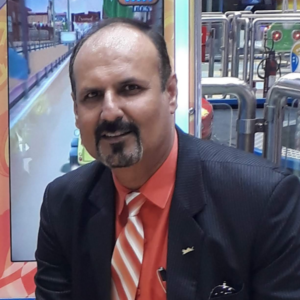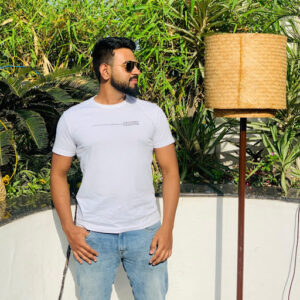Paediatric Physiotherapy
It is the branch of physiotherapy mainly focussed on assessment and treatments of the children with movement or movement- based disorder in children from 0-18 years. These disorders may be concerned with musculoskeletal, neuromuscular, developmental, and respiratory systems of the children.
Physiotherapists know that children are very different from adults and require different skills and approaches to treat them. So the Physiotherapists use many skills of physiotherapy to observe the movements of body, balance, coordination, posture, gait disorders, milestones, and muscle performance.
After an observation, a detailed assessment will be done to find the main cause where the issue lies and a treatment protocol is designed to gain functional movement.
So a Paediatric Physiotherapist treat the children in the areas of orthopaedics, congenital malformations, neurology, breathing and prematurity or developmental delays. Children can be treated in-clinic, rehabilitation centres and within the home environment. Physiotherapy treatment is vast and extensive and need a specialised knowledge to deal with children with any types of impairments. Treatments in paediatric physiotherapy change according to age and condition of children.
A physiotherapist takes care of your rising superstar so that he/she can perform better and achieve their respective goal in their daily livings.
Does your child look lethargy or obese, not able to use their full potential, get irritated when you ask to do some physical activity, not able to walk or can’t perform in their favourite sports. Well no worries, our qualified and experienced Paediatric physiotherapists are here to help your child. With a dedicated and customised treatment plans, we are here to improve your child’s posture and alignment.
Children born with a neurological condition like cerebral palsy (CP) or torticollis, developmental milestones or any other issues need physiotherapy.
A physiotherapist must work in association with a paediatrician, speech therapist or occupational therapist to enhance the overall well-being of a child.
Goal of paediatric physiotherapy
Benefits of Paediatric Physiotherapy
The benefits of physiotherapy are many as listed below:
A Paediatric physiotherapist must work on
Education and Family Involvement: Providing education about child’s condition and how they can improve their progress is a first and mandatory step for all physiotherapist. Proper guidance and education is provided to the parents and caregivers towards child’s work, game, home exercise programs, positioning techniques, and strategies to improve to promote motor development and functional independence.
Exercise Protocol: Designing exercise protocol will improve their overall development.Every child has a different issue and needs a different types of treatment plan and exercise protocol.
Milestone Delay: Some children are diagnosed as a delayed milestone because when they reach a significant stage and lack specific activity. These milestones can be achieved by treating a child’s specific needs, abilities using fun games and activities.
Coordination: Children with motor difficulties and/or delayed milestones have balance and coordination issues. Poor coordination impacts their physical, social and emotional well-being. Specific attention towards their developmental coordination will overcome their difficulties with time.
Pain Control: Children injure themselves during playing activities and receive muscular and bony injuries. Physiotherapy treatment involves use of specific electrical modalities and other therapeutic techniques.
Sports Guidance: We provide tips to children and parents to develop a child’s sport specific fitness, manage their exercise protocol, skill and proper body movement and positioning to enhance their sportsmanship.
Emotional Support: Having a child with some specific disorder creates an emotional stressto the parents and the child too, so they need to provide emotional support. A physiotherapist must be humble enough to provide that emotional support throughout the therapy process to understand the challenges and emotional impact.
Overall, paediatric physiotherapy focuses on maximizing a child’s physical potential, enhancing their independence and participation in daily activities, and supporting their overall development.

Common Paediatric Conditions
- Balance and Coordination
- Body Alignment
- Brachial Plexus Injury
- Cerebral Palsy
- Childhood Obesity
- Club Foot
- Congenital Hip Dislocation
- Congenital Talipes EquinoVarus (CTEV)
- Contractures
- Delayed Milestone
- Developmental Delay
- Developmental Delays
- Dislocations
- Down’s syndrome
- Erb’s Palsy
- Flat Foot
- Fractures
- Gait Disorders
- Guillain barre’ syndrome
- Hydrocephalus
- Infantile Hemiplegia
- Klumpke’s Palsy
- Muscular Dystrophy
- Muscular Pain
- Neuromuscular Problems
- Postural Dysfunction
- Spina Bifida
- Spinal Cord Injuries (SCI)
- Sprain
- Strain
- Sports Injuries
- Torticollis
- Traumatic Brain Injuries
Frequently Asked Questions
A paediatric physiotherapist treats the child born with a neurological condition like cerebral palsy (CP) or torticollis, growth and developmental milestones issues, syndromes or any neurological conditions. Children, infants to teenagers, are treated by a paediatric physiotherapist. The treatment of a Paediatric physiotherapist is focused on a number of hands-on techniques, exercises and interventions according to need and severity of impairments.
A paediatric physiotherapist use their vast knowledge to assess, identify, diagnose and treat physiological impairments within the children. Paediatric physiotherapy treatment is mainly focused on a need of the child and every child needs a specific types of treatment including hands-on techniques, specific designed exercises and interventions to achieve overall wellbeing of a child.
Treatment goals depends upon the disability or impairments of the child. A paediatric physiotherapist works in a team to provide friendly, professional physiotherapy services to enhance the muscle strength, proper functioning and overall growth of a child. A team comprises a physiotherapist, the child and family as central components, as well as other health professionals like paediatrician, neurologist, occupational therapist, nurse, nutritionist or teachers and most importantly parents.
Physiotherapy helps the children to improve motor skills, functional mobility, strength, flexibility and tone of muscles, balance and coordination, posture and reflexes of a child, making movements easier, improving range of motion and gait patterns and preventing the future deformity.
What our client says!

I recently visited here for physiotherapy, and I had a great experience. The staff were professional and knowledgeable, ensuring that I understood my treatment plan and exercises. The clinic was clean and well-organized, creating a welcoming environment.

I recently had a physiotherapy session at "YesPhysio Physiotherapy & Sports Rehab Clinic", and it was an excellent experience. The staff were friendly and knowledgeable, making me feel comfortable and well-cared for. The treatment was effective, and I felt much better and more relaxed after just one session. Highly recommend!

Staff having sound knowledge related to physiotherapy, staff is skilled and cooperative and hardworking. Clinic is having updated equipment and equipped with all necessary accessories which need during physiotherapy. My personal experience was good and I do recommend to all.

One of the best physiotherapists in Zirakpur, Balkar Ji is knowledgeable and treated my wrist and knee pain with advanced skills. Highly recommended

I had a tear in rotator cuff and balkar sir helped in my rehab, he was great with his work and the environment is very comfortable , I really recommend it. Great work.

Best physio clinic in town, Doctor balkar treated my tennis elbow, rotator cuff and lower back bulge. Highly recommended

According to me it is the Best Physiotherapy Clinic in Zirakpur and for the needful person they provide Physiotherapy at Home also.

They are giving great service among the people and i must they are very humble and well trained staff

